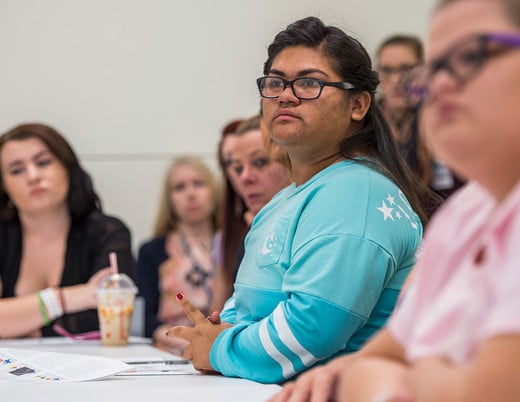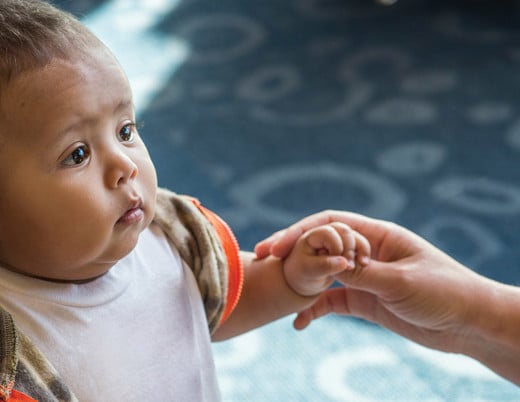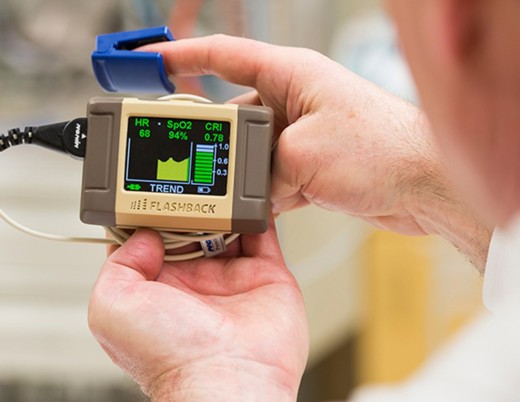Key takeaways
-
Weight loss, kidney function and cardiovascular risk factors improved after bariatric surgery, but some teens required hospital readmission.
-
Type 2 diabetes progressed in medically managed teens.
-
Well-designed, prospective controlled studies are needed to learn more about the role of surgery in treating type 2 diabetes in severely obese teens.
Research background: Type 2 diabetes has increased in children
There has been a substantial increase in type 2 diabetes in the pediatric population, with more than 5,000 children under the age of 20 diagnosed each year. From 2001 to 2009, type 2 diabetes increased 31% in 10 to 19-year-olds.
Analysis of TODAY and Teens-LABS
Data from participants in the Treatment Options for Type 2 Diabetes in Adolescents in Youth (TODAY) and Teen-Longitudinal Assessment of Bariatric Surgery (Teen-LABS) studies were used to compare surgery with medical management of severely obese adolescents with type 2 diabetes.
The principal investigators of this study were Thomas Inge, MD, former Director of the Bariatric Surgery Center at Children's Hospital Colorado and Philip Zeitler, MD, PhD, Director of Pediatric Endocrinology at Children's Colorado.
The analysis focused on:
- Weight change
- Control of type 2 diabetes
- Glycemic control
- Cardiovascular risk markers
- Proteinuria
- Kidney function
- Frequency of hospital admission during two-year follow-up
Research methods: Comparison of two clinical trials for children and adolescents with type 2 diabetes
Treatment Options for Type 2 Diabetes in Adolescents in Youth (TODAY) clinical trial
Led by Dr. Zeitler, this NIH-funded multicenter trial, which ran between 2004 and 2009, included 699 adolescents with type 2 diabetes from 15 U.S. centers. The main purpose was to discover which medical therapies worked best to achieve control of type 2 diabetes in youth. The study found:
- Almost 50% of teens with type 2 diabetes failed to maintain durable glycemic control, irrespective of their assigned treatment group.
- Teens who failed oral treatment needed insulin therapy after an average of 11 months in the study.
- Combining metformin with rosiglitazone improved diabetes control by 23% compared with metformin alone.
- After four years, the prevalence of hypertension and albuminuria tripled and elevated LDL increased 2.4-fold — both irrespective of degree of diabetes control.
The collective data suggested that youth with type 2 diabetes have increased risks for cardiovascular complications and kidney injury over time. The study also found neither metformin nor rosiglitazone stops the progression of diabetes or obesity-related comorbidities.
Teen-Longitudinal Assessment of Bariatric Surgery (Teen-LABS) study
Led by Dr. Inge, this NIH-funded multicenter prospective outcomes study examined 242 adolescents who underwent bariatric surgery at five U.S. centers between 2007 and 2012.
Thirty Teen-LABS participants had type 2 diabetes at the time of their surgery. Data from this group of 30 was matched to a subset of approximately 65 severely obese TODAY participants.
Research results: Only the surgical group showed major weight loss and improvement in diabetes control
Weight change over two years of follow-up

Diabetes and metabolic status over 2 years of follow-up
Teen-LABS
- Mean hemoglobin A1c (HbA1c) declined from 6.8% to 5.5% (normal is <5.7%) at two years.
- 94% in the group had a HbA1c value in the non-diabetic range (<6.5%) at two years
- The proportion of participants with an HbA1c in the ≥6.5% category decreased from 48% at baseline to 6% at two years.
- Nearly half (45%) had hypertension at baseline, which decreased to 20% at two years.
- 72% had elevations of lipid levels at baseline, which decreased to 24% at two years.
TODAY
- Mean HbA1c increased from 6.3% to 7.6%.
- Only 38% in the group had an HbA1c value in the non-diabetic range (<6.5%) at two years.
- The proportion of participants with HbA1c in the ≥6.5% category doubled from 35% at baseline to 62% at two years, despite intensive medical management and emphasis on medication adherence.
- 22% of participants had hypertension at baseline, which increased to 41% at two years.
- 77% had elevations of lipid levels at baseline, compared to 73% at two years.
Clinical adverse events (over two years of follow-up)
Teen-LABS
- Seven of 30 participants experienced complications requiring reoperation and/or readmission.
- Six others required hospitalization (most deemed unrelated to surgery)
TODAY
-
Two of 63 participants required hospital admission (for calf swelling and ankle edema).
Research conclusion: Surgery is superior treatment for adolescent type 2 diabetes
Adolescents with severe obesity and type 2 diabetes who received medical management experienced modest weight gain, progression of type 2 diabetes and no improvement in cardiovascular risk factors after two years.
Most adolescents who underwent surgical procedures in the Teen-LABS study experienced significant weight loss, diabetes remission and improved cardiovascular risk factors and kidney function. One-fifth of these adolescents also experienced clinical events that required surgical management.
There is a critical need for more research on the long-term effects of surgery related to medical therapy, as there is not much known currently.
Featured Researchers
Thomas H. Inge, MD, PhD
Pediatric surgeon
Children's Hospital Colorado

Phil Zeitler, MD, PhD
Medical Director, Clinical and Translational Research Center
Department of Pediatric Endocrinology
Children's Hospital Colorado
Professor
Pediatrics-Endocrinology
University of Colorado School of Medicine





 720-777-0123
720-777-0123










